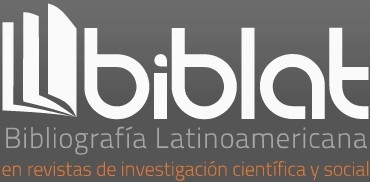A Catenary and Tensive Model for the Structure of the Semiotic Square: Come out of Aristotle
DOI:
https://doi.org/10.35494/topsem.2021.2.46.740Keywords:
Tensive Semiotics, Semiotic square, CatenaryAbstract
“The gradual being posited as the first, the categorical is obtained by suspension of the catenary terms and conservation of the extreme terms” (Zilberberg, 1981, p. 10). The word catenary designates in geometry the curved shape taken by a cable suspended by its extremities and subjected to its own weight. This figure of the catenary is here explored in order to inaugurate two theorizations: a) superimposed on the tensive graph [∟], proposed by Zilberberg, it requires a second graph, mirrored, inverted, thus duplicating the tensive gradient to collect the two terms categorical of the semiotic square which thus “intensifies”; b) the catenary diagram authorizes a tensive model of articulation of the semantisms of language outside the Aristotelian logic of the semiotic square, allowing it to go beyond it, that is to say by allowing the semiotics to “come out of Aristotle”.
Downloads
References
Une troisième voie pour la connaissance. París. Lambert-Lucas.
Beividas, W. (2019). Um modelo catenário e tensivo para a estrutura do quadrado semiótico. Estudos
Semióticos, 15, 39-53. USP. https://doi.org/10.11606/ issn 1980-4016.esse.2019.156046
Benveniste, É. (1966). Problèmes de linguistique générale II. París. Gallimard.
Bertrand, D. ; et Fontanille, J. (Dirs.). (2006). Régimes sémiotiques de la temporalité. París. PUF.
Edeline, F. (2011). Une image ne démontre pas, elle convainc. Actes Sémiotiques, (114).
https://www.unilim.fr/actes-semiotiques.
Fontanille, J. (Dir.). (1995). Le devenir. Limoges. PULIM.
Fontanille, J. (2008). Pratiques sémiotiques. París. PUF.
Greimas, A. J. (1973). Les actants, les acteurs et les figures. En C. Chabrol (Org.). Sémiotique narrative et textuelle
(pp. 161-176). París. Larousse.
Greimas, A. J. (1983). Du sens II. Essais sémiotiques. París. Seuil.
Henault, A. ; et Beyaert, A. (Dir.) 2004. Ateliers de sémiotique visuelle. París. PUF.
Hjelmslev, L. (1971). Prolegómenos a una teoría del lenguaje. Madrid. Gredos.
Landowski, E. (2004). Passions sans nom. París. PUF.
Landowski, E. (2006). Interactions risquées. Limoges. PULIM.
Marsciani, F. (2012a). Ricerche Semiotiche I. Il tema transcendentale. Bolonia. Società Editrice Esculapio.
Marsciani, F. (2012b). Ricerche Semiotiche II. In fondo al semiotico. Bolonia. Esculapio.
Moutat, A. (2015). Du sensible à l’intelligible. Pour une sémiotique de la perception. Limoges. Lambert-Lucas.
Zilberberg, C. (1981). Essai sur les modalités tensives. Ámsterdam. John Benjamins.
Zilberberg, C. (2006). Éléments de grammaire tensive. Limoges. PULIM.
Zilberberg, C. (2011). Des formes de vie aux valeurs. París. PUF.
Zilberberg, C. (2012). La structure tensive. Lieja. PUL.
Downloads
Published
How to Cite
Issue
Section
License

Tópicos del Seminario is licensed under a Creative Commons Reconocimiento-NoComercial-CompartirIgual 4.0 Internacional License.














